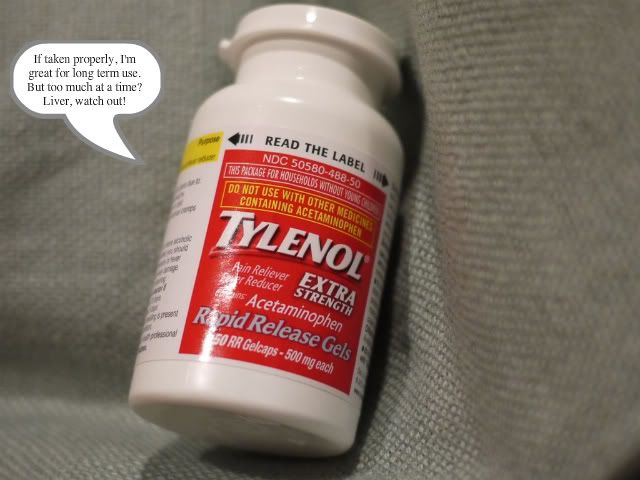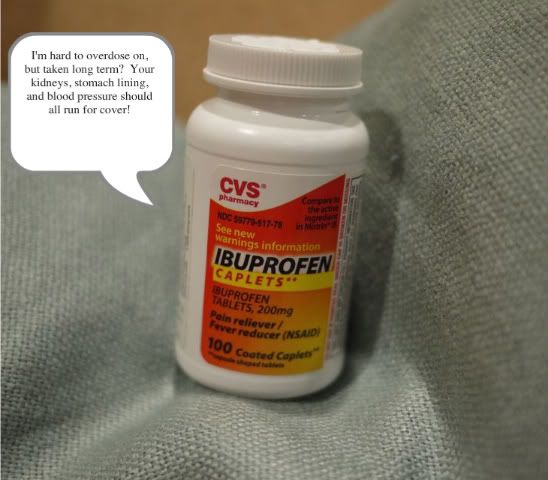This is an area in which I see a lot of confusion. Many patients have a vague sense that Tylenol and Motrin can cause problems, but more than half the time, they are mixing up which is which. Since taking these medicines unsafely or indiscriminately can have serious consequences, and since the fact that they are OTC can lull people into a false sense of security, I figured I'd clear this up.
1)Tylenol (a.k.a. Acetaminophen)

Tylenol is a great medicine, and very safe when used properly. It can reduce fever and pain. It's safe in babies and pregnant women. It isn't the strongest pain reliever in the world, but it works. What makes Tylenol so great is that if taken in proper doses (no more than 4 grams in a 24 hour period), it's something that can be taken daily for a long time (years even...which some of my patients with arthritis do). It doesn't have a cumulative damaging effect on the liver over time, assuming you have a normal, functioning liver. The danger? It doesn't take much extra Tylenol to cause a serious overdose. It seems like such a harmless drug, that some people figure popping a few extra at at time won't hurt. But if you look at the graphs of how easily you can get into the danger zone, there isn't a lot of room for error. So stick to the doses as prescribed on the bottle. If you need more pain relief? Try a different type of drug. And remember that 'acetaminophen' is a common ingredient in most cold/cough formulations and even narcotic painkillers. So check for that, and don't double up!
2)Ibuprofen (Which belongs to the NSAID class of medicines. This includes motrin, advil, aleve, naprosyn).

Ibuprofen can also reduce pain and fever. It does have some anti-inflammatory properties
So, to recap:
Tylenol: good for long-term use if used in proper doses. Affects the liver.
Motrin: okay to increase the dose in the short-term. Hard on the stomach and kidneys long-term.
Consider yourself informed! :)

Thanks for making the distinction clear! No doubling up on Tylenol....no long term use of Motrin. Got it.
ReplyDeleteWow! My brother ended up with kidney problems because of pain medication he was taking over a long period of time. Yuck!
ReplyDeleteThat was kind of amazing. Now i'm going to be more careful of how much Tylenol I give my kids!
ReplyDelete